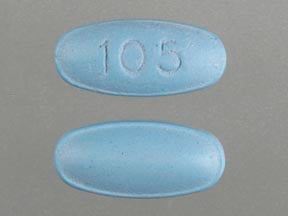
Methenamine Mandelate Coupons & Savings Card – Discount Prices from $22.34
My prescription
Edit
0.5GM, Methenamine Mandelate (30 Tablets)
Select pharmacy

CVS
$49.59
COUPON PRICE
Walgreens
$22.34
COUPON PRICE
Walmart
$27.72
COUPON PRICE
Albertsons
$46.98
COUPON PRICEMethenamine Mandelate savings card
Show this card to your pharmacist
Walgreens
$22.34
BIN
ID
PCN
GRP
015995
LHKPV253905
GDC
DR33
Powered by
More prescriptions for urinary tract infection
More prescriptions for urinary tract infection
Methenamine Mandelate dosage forms
Dosage Quantity Price from Per unit 0.5GM 30 Tablets $27.72 $0.92 0.5GM 60 Tablets $74.43 $1.24 0.5GM 100 Tablets $135.08 $1.35 0.5GM 120 Tablets $156.84 $1.31 1GM 60 Tablets $79.33 $1.32 1GM 100 Tablets $137.05 $1.37 1GM 120 Tablets $162.66 $1.35
| Dosage | Quantity | Price from | Per unit |
|---|---|---|---|
| 0.5GM | 30 Tablets | $27.72 | $0.92 |
| 0.5GM | 60 Tablets | $74.43 | $1.24 |
| 0.5GM | 100 Tablets | $135.08 | $1.35 |
| 0.5GM | 120 Tablets | $156.84 | $1.31 |
| 1GM | 60 Tablets | $79.33 | $1.32 |
| 1GM | 100 Tablets | $137.05 | $1.37 |
| 1GM | 120 Tablets | $162.66 | $1.35 |
Methenamine Mandelate Warnings
The use of Methenamine Hippurate (Hiprex) requires careful consideration of specific safety warnings and contraindications to ensure patient safety. Below is a summary of the critical safety information associated with this medication:
Liver Health Concerns: Methenamine Hippurate (Hiprex) may cause temporary increases in liver enzyme levels, indicating possible liver irritation or damage. Regular blood tests may be necessary to monitor liver function, especially for individuals with a history of liver disease. It is not recommended for those with severe liver issues.
Bladder Irritation and Urinary Symptoms: Exceeding the recommended dose of Methenamine Hippurate (Hiprex) can lead to bladder irritation, frequent, painful urination, and the presence of protein or blood in the urine. Adhere strictly to the prescribed dosage and inform your healthcare provider if you encounter these symptoms.
Drug Interactions: Avoid using Methenamine Hippurate (Hiprex) in combination with sulfonamide medications like sulfamethoxazole/trimethoprim (Septra, Bactrim), as this may result in painful crystal formation.
Contraindications: Do not use Methenamine Hippurate (Hiprex) if you have serious liver or kidney problems, are severely dehydrated, or are taking sulfonamide medications. Always consult your healthcare provider if any of these conditions apply to you.
For any concerns or in cases of overdose, seek immediate medical attention. Following these guidelines will help ensure the safe use of Methenamine Hippurate (Hiprex).
Methenamine Mandelate Side Effects
Common side effects:
- Nausea
- Vomiting
- Diarrhea
- Abdominal cramps
- Decrease in appetite
Less common but important to monitor:
- Painful or difficult urination
- Bladder irritation
- Painful or frequent urination
- Urine that appears bloody or pink
- Mouth sores
- Unusual headaches
- Ringing in the ears
- Muscle cramps
- Swelling in the arms or legs
Serious side effects:
- Rash
- Itching or swelling (particularly of the face, tongue, or throat)
- Severe dizziness
- Difficulty breathing
Methenamine Mandelate Interactions
Interactions with high risk of serious adverse effects and should be avoided:
- Sulfonamide Drugs (including Sulfamethizole, Sulfadiazine, Sulfamethoxazole)
- Urinary Alkalinizers (antacids, Sodium Bicarbonate, potassium or sodium citrate)
- Carbonic Anhydrase Inhibitors (Acetazolamide)
